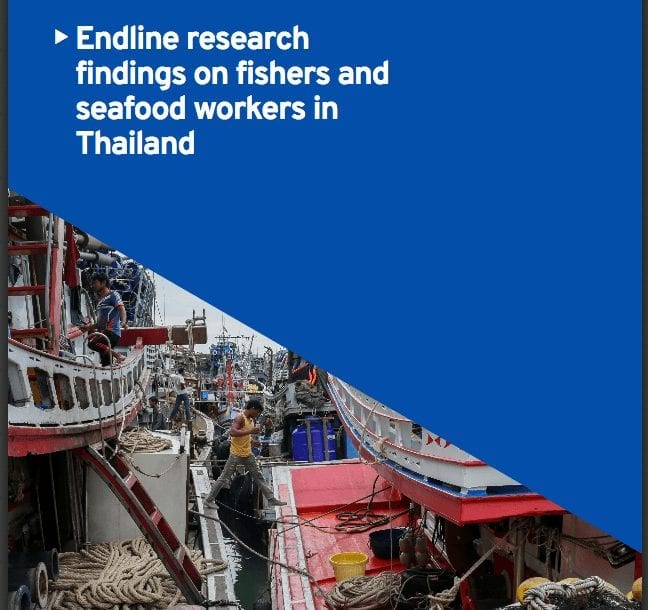
ILO Report on Working Conditions in Thailand’s Fishing and Seafood Industry
New evidence from workers in Thailand’s fishing and seafood industry shows improvements in working conditions since 2017 as well as a persistent forced labour problem. Following up on its ‘baseline’ research published two years ago, the ILO’s Ship to Shore Rights Project (funded by the European Union) surveyed 219 fishers and 251 seafood processing workers for evidence of changes in recruitment, contracts, pay, hours, safety and worker organizing.
In 2018, the ILO’s baseline report unveiled a mixed picture of working conditions in both fishing and seafood processing sectors. Two years later, the ‘endline’ survey shows that changes in working conditions are, on the whole, moving in the right direction. Pay is higher in both sectors, and migration to and work in the fishing sector is now more formal and better regulated. These improvements have been driven in part by changes in Thailand’s legal framework following the ratification of the ILO Work in Fishing Convention (No. 188, 2007) and the Forced Labour Protocol (P. 29) following the 2018 report.
Despite the positive trends, abuses in the fishing and seafood sector persist, including serious ones such as involuntary work and coercion leading to forced labour. The report provides recommendations for changes by the Thai Government, employers and their organizations, unions and overseas buyers of Thai seafood.
Read the full report here.
